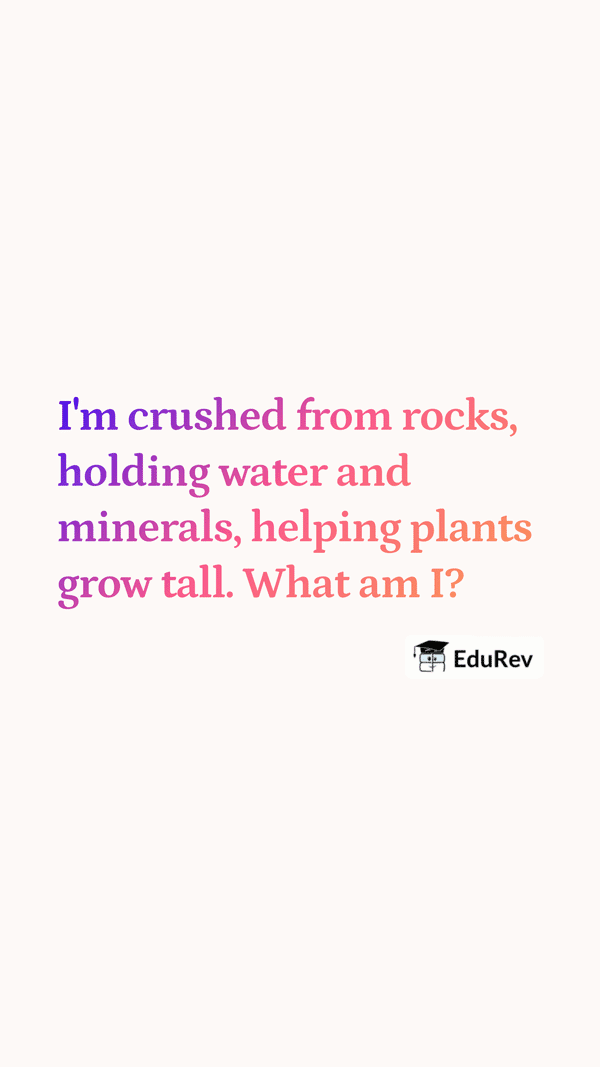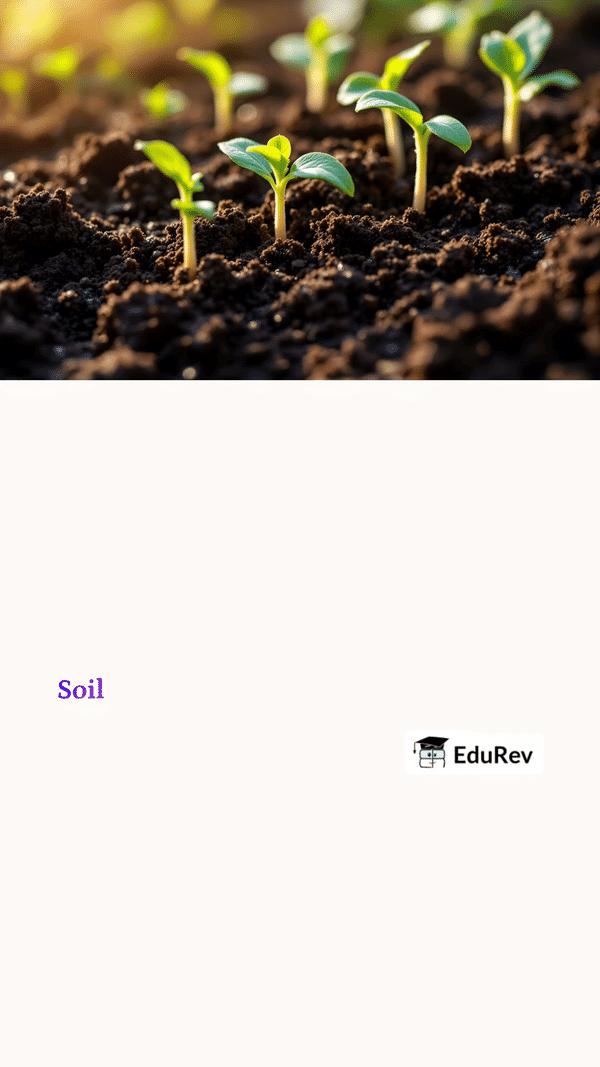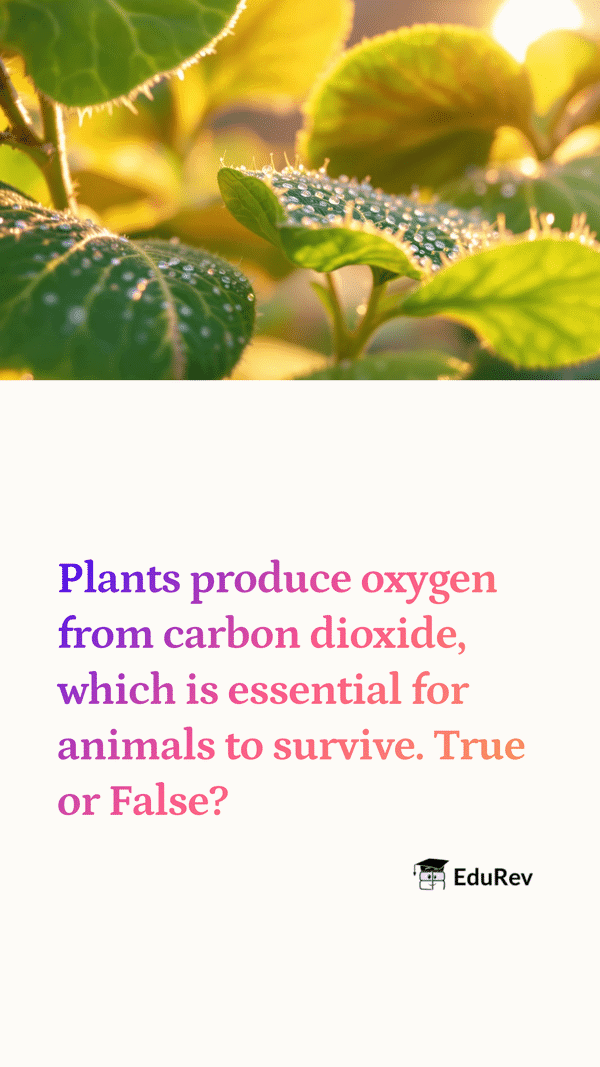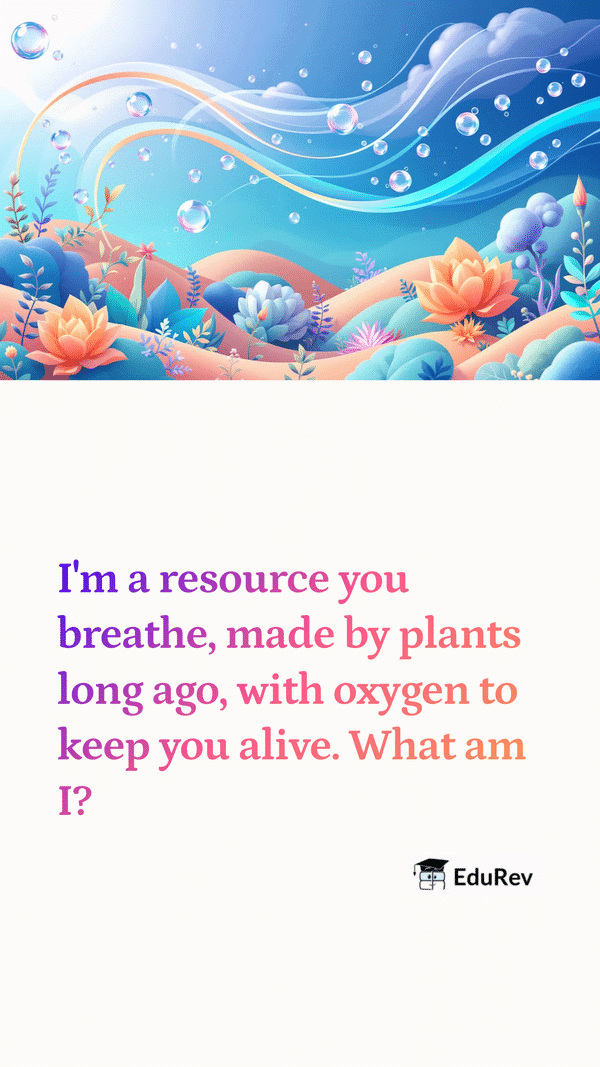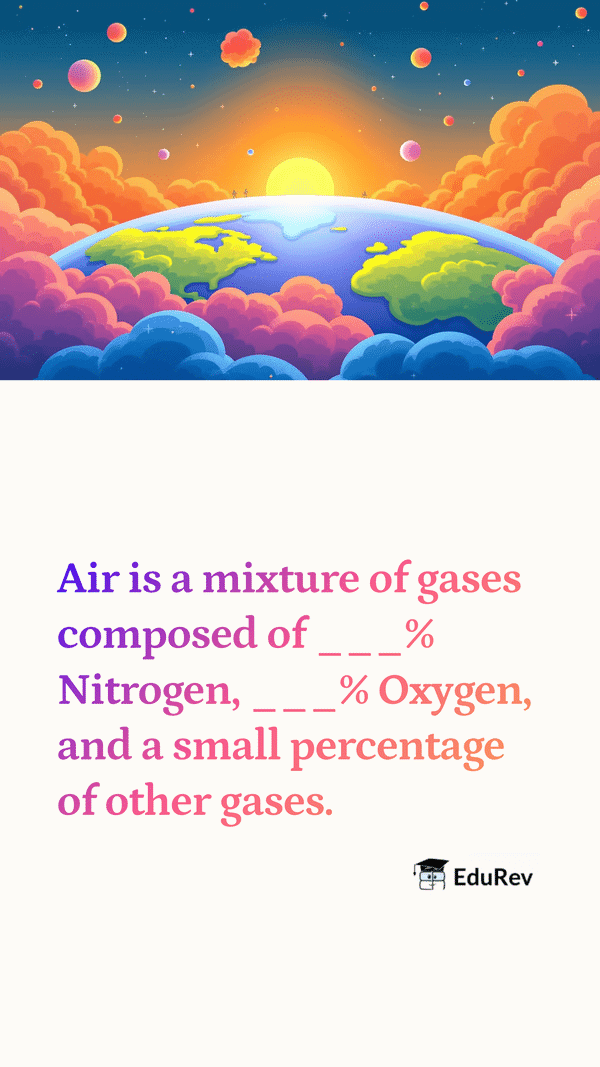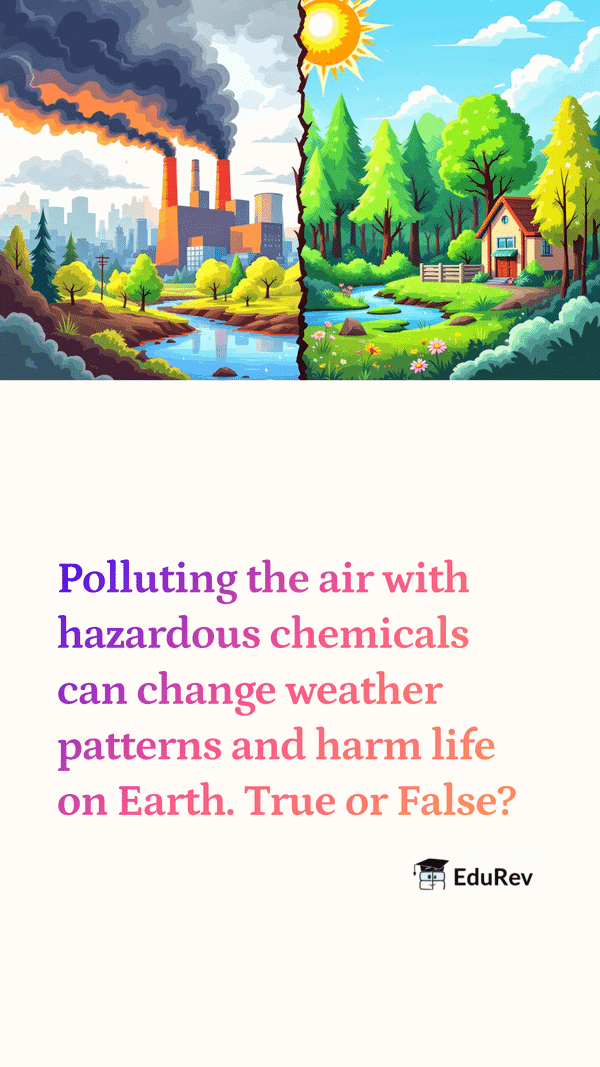 Unlock all Flashcards with EduRev Infinity Plan Starting from @ ₹99 only
|
Class 1 Exam > General Knowledge for Young Learners > Flashcards: Air, Water and Soil
|
52 videos|107 docs|40 tests
|
FAQs on Flashcards: Air, Water and Soil Flashcard - General Knowledge for Young Learners - Class 1
| 1. What are the main components of air and their significance? |  |
Ans. The main components of air include nitrogen (about 78%), oxygen (about 21%), argon (about 0.93%), and carbon dioxide (approximately 0.04%). Nitrogen is essential for plant growth, oxygen is crucial for the survival of living organisms, argon is an inert gas that does not react with other elements, and carbon dioxide is vital for photosynthesis in plants.
| 2. How does water pollution affect soil quality? |  |
Ans. Water pollution can significantly degrade soil quality by introducing harmful chemicals and pathogens that can contaminate the soil. Polluted water can lead to the accumulation of toxins in the soil, affecting the growth of plants and potentially entering the food chain, which can harm both human health and local ecosystems.
| 3. What are the effects of air pollution on human health? |  |
Ans. Air pollution can lead to a variety of health issues, including respiratory problems, cardiovascular diseases, and adverse effects on the nervous system. Long-term exposure to polluted air can increase the risk of chronic conditions such as asthma, lung cancer, and heart disease, as well as negatively impact overall life expectancy.
| 4. How can soil erosion impact water quality? |  |
Ans. Soil erosion can lead to increased sedimentation in bodies of water, which can cloud the water and disrupt aquatic habitats. Additionally, eroded soil can carry pollutants such as fertilizers and pesticides into waterways, leading to nutrient overload, algal blooms, and decreased oxygen levels, ultimately harming aquatic life and water quality.
| 5. What practices can help in conserving air, water, and soil? |  |
Ans. Practices that can help conserve air, water, and soil include reducing emissions by using public transportation or electric vehicles, implementing water-saving techniques like rainwater harvesting, and promoting sustainable agricultural practices such as crop rotation and organic farming. Additionally, reforestation and responsible waste management contribute to the protection of these vital resources.
|
52 videos|107 docs|40 tests
|
Related Searches




